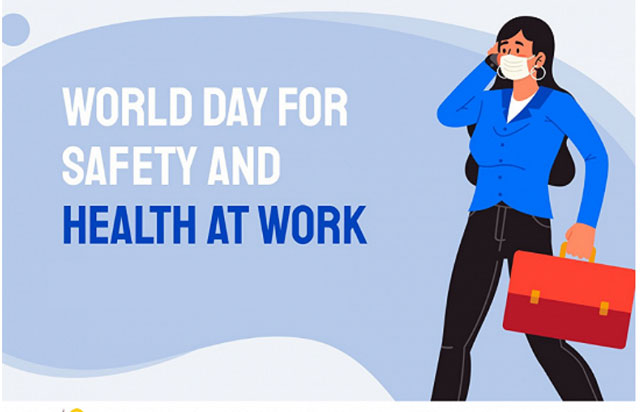
The MetLife Mental Health Report,2020 indicates that, globally 41% of Employees regularly feel stressed, burned out and depressed at work
COMMENT | Beatrice Mujuni | The fancy office building with excellent lighting, a perfect view, air-condition, fire alarms, top notch security systems, squeaky clean tables and sparkling floors is literally a picture-perfect work environment. Sadly, all this is worth much less compared to the people intended to occupy and enjoy the space.
Just recently, Uganda joined the rest of the world to commemorate, World Safety and Health (OSH) Day under the theme “Anticipate, Prepare and Respond to the Crisis-Invest in Resilient OSH Systems”. The theme was inspired by the adverse COVID-19 pandemic.
Essentially, it is the duty of employers by law to protect the health of workers through provisions under the Occupational Safety and Health Act, 2006, following international standards to uphold decent work.
The World Health Organisation defines OSH as the “promotion and maintenance of the highest degree of physical, mental and social well-being of workers in all occupations.” But guess what? more often than not the mental and social well-being aspect within OSH is unconsciously ignored.
It is quite easy to have a well-structured workspace with all the physical safety measures in check and yet not devote to the mental well-being of workers.
The International Labour Organisation estimates that more than one million work-related deaths occur annually and hundreds of workers suffer occupational accidents and inquiries due to exposure to hazardous substances. Imagine how many more accidents could occur or worst still, lives potentially lost as a result of the poor mental state of workers.
The MetLife Mental Health Report,2020 indicates that, globally 41% of Employees regularly feel stressed, burned out and depressed at work.
Organisations are encouraged to rise to the challenge and take action to implement best practices for mental-health promotion to mitigate workplace risk factors in the same way they take responsibility for workplace risk to physical health.
A recent study published in the International Journal of Environment Research and Public Health, 2019 found that lack of conviction in the workplace is associated with rise in stress levels, cardiovascular-disease, high blood pressure, high cholesterol and diabetes. In addition, disability and health statistics show a co-mobility between physical and mental illness of up to 50%. Implying that accessibility and other inclusivity related barriers at the workplace for persons with disability negatively affects their mental health and could lead to depression.
The COVID-19 pandemic disrupted work and lifestyle taking a toll on the mental health of so many individuals. Now more than ever is the time for Employers to develop a decent work culture that brings mental health at par with physical health and safety at work.
The following are few ways to improved mental health at work;
Inclusion; Employers should develop inclusive policies that integrate engagement, involvement and influence of Employees regardless of their race, gender, physical ability, socio-economic status etc…
Work-Life Balance; Workloads given should be reasonable to allow Employees strike a balance with the demands of their personal life.
Growth and Development; Employers should factor continued-intellectual growth of Employees and incorporate skills development through on-job training to cultivate a sense of purpose for Employees.
Psychosocial-Support; Employers should create avenues for a social support system of Employees such a counselling, team-building and open-door policies to eradicate toxicity at work.
Reward and Recognition; For the right amount of motivation and positive energy at the work place, Employers should appreciate, recognise and reward Employees for their contribution to the organisational goals.
Much as mental health is largely an individual’s responsibility, we all have a part to play in ensuring we are cautious of the subject its impact on society. It should also be noted that certain circumstances trigger mental instability and the fact that people spend almost 90% of their daily life at work, it is pertinent that the work environment is accommodative.
Investing in psychological health and safety of workers is a win-win for employers, research shows that it increases productivity by 12% and reaps rewards through demonstration of higher market valuation.
Let’s improve the quality of work and more importantly the quality of life by protecting our mental health.
 Beatrice Mujuni is a Communications, Policy and Advocacy Practitioner
Beatrice Mujuni is a Communications, Policy and Advocacy Practitioner
 The Independent Uganda: You get the Truth we Pay the Price
The Independent Uganda: You get the Truth we Pay the Price


